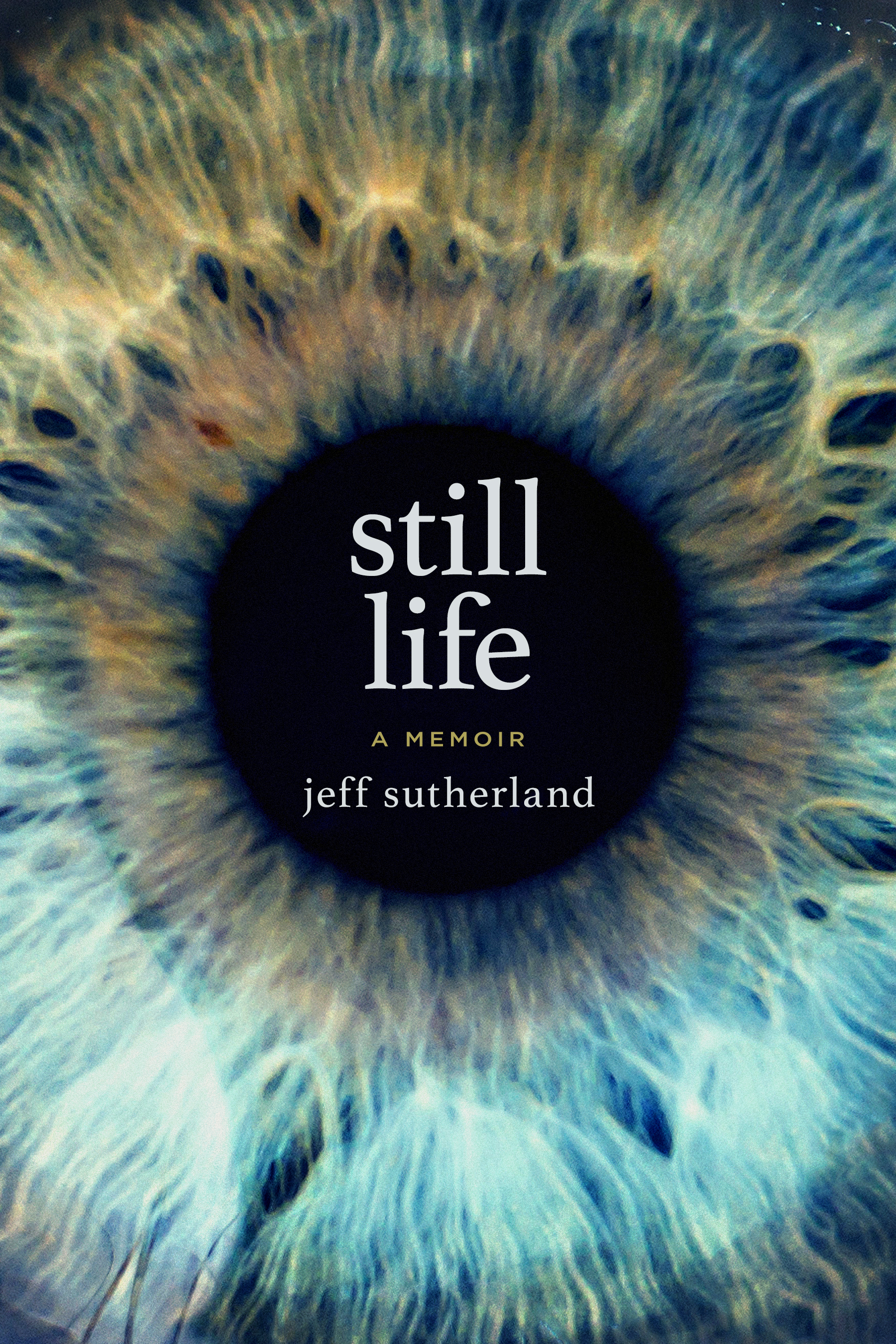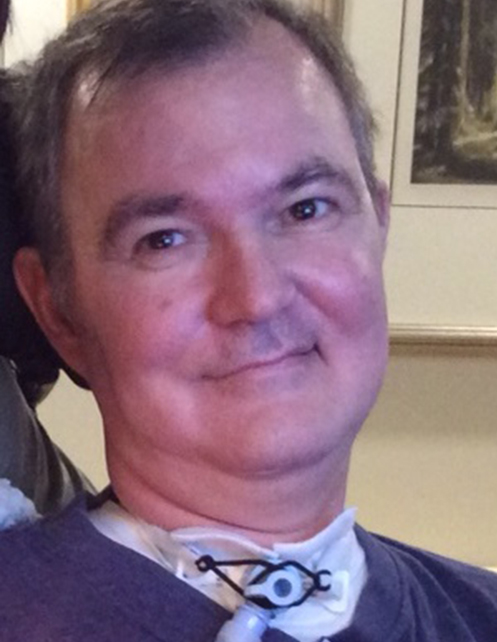I have a mantra that I chant in my head before I face each morning. It consists of eighteen words, arranged alphabetically: “Abundance, balance, compassion, courage, empathy, faith, forgiveness, gratitude, hope, imperfection, integrity, joy, love, mindfulness, passion, peace, purpose, resilience.” To me, these are the essential elements of a life well-lived.
Over time, as I have repeated the words in my daily ritual, I have come to appreciate that they are also necessary for resilience after profound loss. It is not a coincidence that the list ends at resilience. Each element is an integral part of resilience, and together the elements lead to resilience. If we strengthen these qualities within us, we will all live more happily in our imperfect lives. We will create the motion and personal growth required to overcome the many obstacles we encounter along the way.
We often think of abundance as meaning the possession of many material things. My definition of abundance is the possession of many of the qualities in this list and the resources and services necessary for us to overcome our obstacles. Most of us will have abundance in some facets of our lives but not in others. I feel that one of our purposes in life is to fill the gaps, to welcome into existence the qualities we are lacking, or to find peace in our lives without that quality. Also, I have learned that an abundance of resources, materially (so that your basic needs are covered), of positive personality traits, of family and friends, and of community in the form of affordable services and supportive programs to help strengthen our mental health and well-being, are essential for resilience.
Balance was not a quality that came to me right away. At times in my life, I spent too much time at work, which is easy to do when work is a calling for you. This caused friction at home and made me feel guilty for not prioritizing my young family. Before this reached a crisis, Darlene and I talked frankly about it and I adjusted my priorities, putting my family at the top where it belonged. Most human vices are only vices because they are taken to an extreme. The maxim “everything in moderation” counsels us to avoid pursuing our obsessions to the neglect of other equally important parts of our lives. Balance is a skill that can be attained with regular reflection. It is also required in managing grief. Profound loss and constant grief are exhausting. You need occasional distractions and to spend time on personal growth. Balance in your mourning allows you to experience the first sparks of hope from which you can see your new life going forward.
I define compassion as the ability to see suffering in others and doing something to help alleviate it. Suffering is all around us but if we stay in our own little worlds we can insulate ourselves from it. It also can be so prevalent in the world that we become overwhelmed and fail to respond to people in need. Any attempt, small or large, to alleviate suffering will have a positive effect on those around us. And compassion toward oneself will lessen the guilt a survivor feels for still being alive. Compassion to oneself is also necessary for resilience.
Courage helps us adapt to adversity. It allowed Zach and Kaya to choose to try to save each other. Courage has also kept us from giving up despite our immense adversities. Without courage, we would be victims of our tragedies. We need courage to help us ask for the help of others, laugh again and find joy in our lives.
Empathy is a cousin of compassion. When we have empathy, we are able to withhold judgment, putting ourselves in the shoes of others and seeing the world from their vantage points. Empathy can be developed and learned so there is hope for all of us to nurture and strengthen these skills. Doing so brings more peace to our lives because we better understand each other. Sometimes the differentiation between when we are acting because of compassion or because of empathy is difficult to understand. I believe I can only be empathetic when I have experienced a similar situation to that of the person I am trying to understand by viewing life from their perspective. For those whose experiences are not relatable for me, I don’t have the ability to view their problem from their perspective but I can offer them my compassion. In my mind, the differences between when we are acting because of compassion or empathy are not important because the actions that either elicits are powerfully positive. Empathy is also a starting point for forgiveness, and being able to forgive others is another way to enhance peace of mind.
I have already discussed my faith and my thoughts on forgiveness which have been necessary to my resilience. One more thought about faith: If you aren’t able to find a particular faith in which to believe, having faith in the sole fact that things will get better will help you during the most trying times.
I wrestle with gratitude. How can I be grateful for the last twelve years of my life, given everything that has happened? It would be insane to be grateful for all I have lost so I concentrate instead on the individual growth I have attained, and seen others attain as a result of our experiences. Life with ALS has taught me patience and has shown me that I can live without physical pleasure. The physical loss of Zach and Kaya has taught me the importance of love and of our spiritual existence. I would have done anything to avoid our tragedies but I believe that Darlene and the boys will now be better able to manage their grief at my eventual physical death because of all that has transpired. The grief work that we have done will give them the perspective to go on without my physical being. I am grateful for this.
Also, the truth is that on most days I feel fortunate for what I have and do not think about what I lack. I live pain-free in an environment where I actively contribute to the well-being of the people I love. I give love and receive it from family and friends, most of all from my wife, Darlene, and my sons. Despite ALS, my boys still remember a healthy, active, physically fit father. I am not defined by them as helpless and dependent. I have lived longer than most with ALS and because of this I have been able to leave my loved ones some legacy, including these writings. Each of my family members has been greatly challenged by life but is still able to love and find joy. I have been able to add lifelong friendships during every phase of my life and have lived in a community that continues to support me and my family. For this, too, I am grateful. I have learned that when you reflect on your life’s circumstances you can always find something for which to feel gratitude, and those feelings promote acceptance, relieve suffering, and counteract despair. Gratitude takes you from being a victim to being a survivor.
Hope is essential for a good life. It fuels our dreams and aspirations. As a physician, I was often amazed at how some people with terminal illnesses managed to hold on to hope. Now that I have a terminal illness myself, I understand how this is possible, although hope for me is complicated, much like gratitude. In the aftermath of loss, hope disappears and takes its time returning. And now, while I can hope for better things for my family, knowing that Darlene and the boys have the strength to activate that hope now and in the future, it can be difficult to sustain individual hope while living with terminal illness. Yet most days I fill my time with productive activities and find things to look forward to. I hope that I am still able to give myself personal challenges and continue to have my purposes unfold in my everyday life. I hope that someday I can have greater personal abilities than I now enjoy.
Imperfection is part of being human. I have seen so many people strive for unrealistic goals of perfection, and even though some are able to find short-lived perfection in one aspect of their lives, it is usually at the expense of something else. This seems especially a problem for young people today. They have anxiety about being anything less than perfect, some of it ingrained in their own personalities, some of it as a result of pressure from their families and society. They fear failure, which they measure as anything less than perfection. I have been a high achiever in life and I know the pressure to be perfect. Still, I had the chance, while young, to succeed by being imperfect, to learn from my mistakes, which are far better teachers than our accomplishments. I had many avenues open to me and I did not have to compete at such an early age for academic and athletic accomplishment.
I have become much better acquainted with imperfection over the last twelve years, and it has taught me what is truly important to a good life. I have gained perspective, which can only come to us from imperfection. When everything in life is going well, we have no need to wonder why we are happy. Pondering existential questions is something most of us need to be pushed toward. It has not been an easy path but rarely do great achievements come without great work. I have made peace with my imperfection.
Integrity is a small word that encompasses much. It is our honesty, our ability to take responsibility for our mistakes and to show kindness and empathy to others. It is about using the right words and taking the right actions. It is patience, calmness, inclusiveness, and humility. Integrity is being congruent with the divinity within us all. It is also necessary for self-respect, which in turn enables self-love, and it is only through loving ourselves that we foster resilience.
Joy is happiness on steroids. It is the emotion that has the highest vibration and as such, it brings us closest to divinity. During the last twelve years, I have lived with too much sadness. I knew joy before, and I know I have to find joy again because it is the frequency of being that brings me closest to my true self. I doubt that I will be able to attain pure joy, given our losses, but I hope I can find something close to it. And if I can entertain the possibility of joy in my life, I hope that others will be able to experience it in the simple fact of being able.
Love is the sun that nurtures, strengthens, and enables us to grow physically and spiritually. It transcends time, distance, even life and death. Love can connect us all and eventually will connect us all. Love keeps us fighting the obstacles in our lives. We must love ourselves before we can share this gift with others. Unconditional love is the greatest gift we can give or receive.
In a world of increasing distractions, mindfulness is a lost practice. The principles are simply being in the “now” and taking the time to acknowledge the “now” in a nonjudgmental manner. Shaking off distractions, you recognize the peace of stillness. You escape comparisons of your past to your present, and of your present to some imagined future. I believe that being mindful and practicing mindfulness through regular meditation can bring us all out of darkness and help us defeat many of the world’s woes as well as our individual woes.
Passion puts love into action. It puts our hearts into our activities and puts action into our life’s purposes. It transforms our activities into callings and is the kindling of great deeds. It brings two people together and makes them one. It reignites the enthusiasm for life that is blown out after significant loss. Continued passion for life is necessary for a resilient life.
Peace is the state we obtain when we stop frantically grasping for more or better. We appreciate the good in our lives and no longer need to have more. I have come to peace with ALS and I am not actively looking for a cure. If a cure does come within my lifetime, I will be joyous. I am not waiting for it to happen. I will live the life I have been given to the best of my ability. I do not know if I will find peace in every aspect of my life, particularly with regard to the loss of Zach and Kaya. But I have faith that when I join their souls I will find peace with every loss I have had in my physical life.
I once believed that we were given life to fulfill a greater purpose. I have now come to believe that purpose unfolds in every circumstance and stage of our lives. If we remain open, we will have and fulfill many purposes in our lives. If we believe that we are here for only one reason, we will not take the many other opportunities that present themselves for individual growth. My purposes have included being a good father, a loving and supportive husband, serving others as a physician, being a mentor in medicine and a coach in sports, being an inspiration to others by demonstrating perseverance and resilience after great personal loss. I know I have fulfilled many other purposes, some known to me and some not. Allowing purposes to continue to unfold in my life gives me the ability to continually renew myself and allows me to be defined by something other than my disabilities.
Resilience, finally, is the ability to persevere and flourish in the face of real adversity. Everyone faces adversity, whether it be through divorce, grief, health problems, or job loss. I define real adversity as that which forces you to redefine your future. Resilience is not simply moving on with life after something occurs. It can only come through incorporating loss into one’s life through personal growth. Personal growth enables us to flourish in all aspects of life. I believe that ALS made me a stronger person. It taught me skills that would prove invaluable as I faced the tragedy of Zach and Kaya, enabling me to adjust my emotions and adapt my spiritual beliefs and find a path forward.
Adding resilience to the aforementioned qualities allows one to live a good life.

From Still Life: A Memoir by Dr. Jeff Sutherland. Copyright © 2019 by Jeff Sutherland. Reprinted by permission of Sutherland House Books.
Follow us here and subscribe here for all the latest news on how you can keep Thriving.
Stay up to date or catch-up on all our podcasts with Arianna Huffington here.


